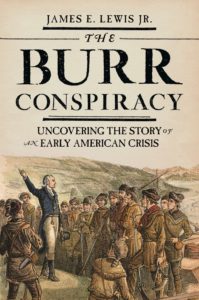


Sometimes it is said that man can not be trusted with the government of himself. I believe it the only one where every man, at the call of the law, would fly to the standard of the law, and would meet invasions of the public order as his own personal concern. I believe this, on the contrary, the strongest government on earth.

I know, indeed, that some honest men fear that a republican government can not be strong, that this government is not strong enough but would the honest patriot, in the full tide of successful experiment, abandon a government which has so far kept us free and firm on the theoretic and visionary fear that this government, the world’s best hope, may by possibility want energy to preserve itself? I trust not. If there be any among us who would wish to dissolve this Union or to change its republican form, let them stand undisturbed as monuments of the safety with which error of opinion may be tolerated where reason is left free to combat it. We are all republicans, we are all federalists. We have called by different names brethren of the same principle. “difference of opinion is not a difference of principle. That truth alone requires each generation to reacquaint itself with the life and work of Thomas Jefferson, and to grapple with his ambiguous legacies.” Thus, whether he would even comprehend the United States in the first years of the twenty-first century, Jefferson's shadow looms large over us, thanks to the conflicting influences of his thinking, doing, and - most important - his writing. His words mean not only what he might have intended them to mean, but also what succeeding generations of Americans have read into them. He achieved his intention to express 'the American mind' and became the leading spokesman for the revolution of ideas that changed, and that continues to change, the face of America and the world. Whatever we think of Jefferson as a person or as a politician, we can never take away from him his remarkable gift as a writer or his ultimate claims to fame. “When we seek to understand liberty, equality, progress, constitutional governance, separation of church and state, and the meaning of the American Revolution, we do so in contexts framed by Jefferson's writings and arguments.


 0 kommentar(er)
0 kommentar(er)
